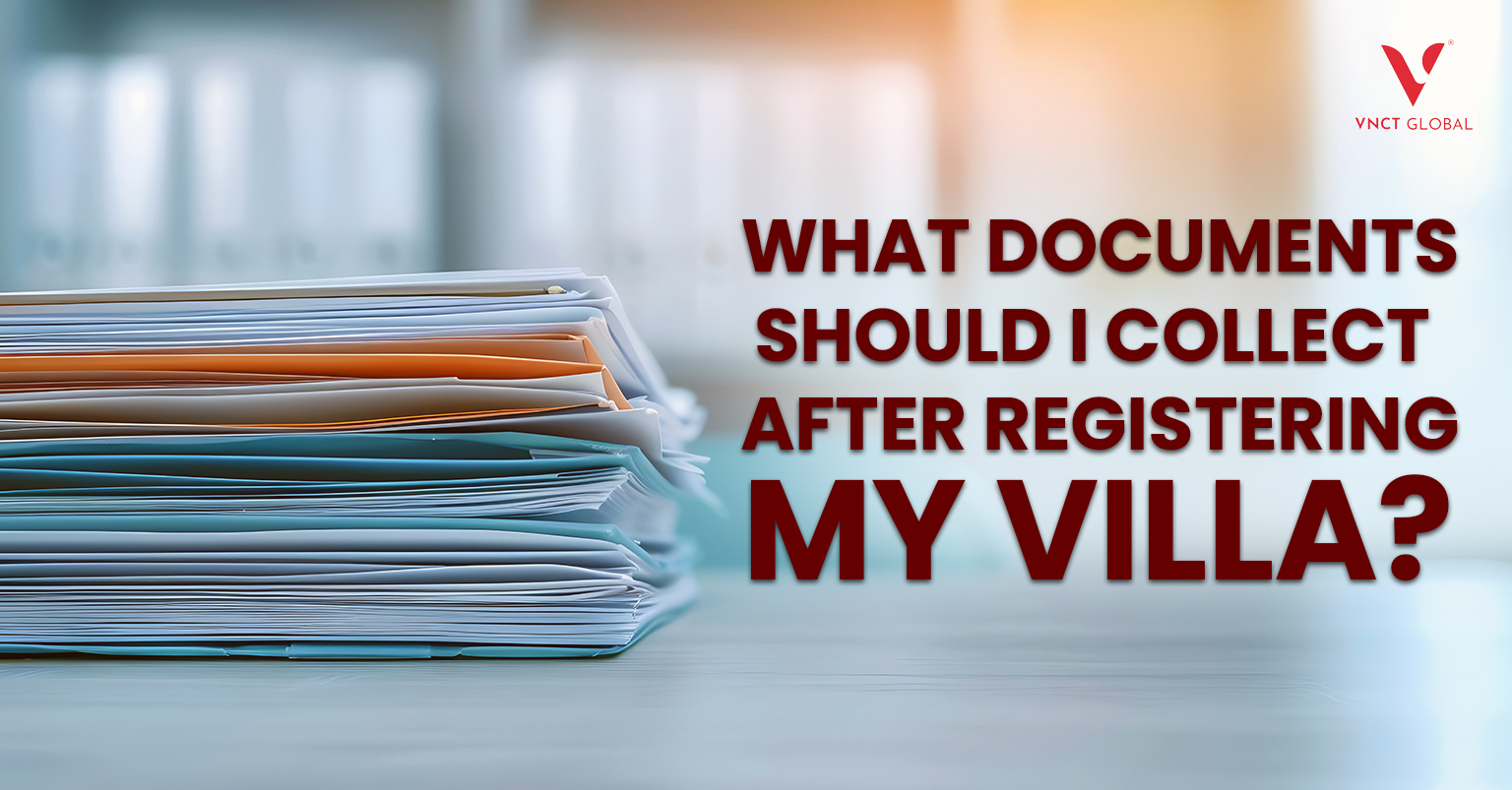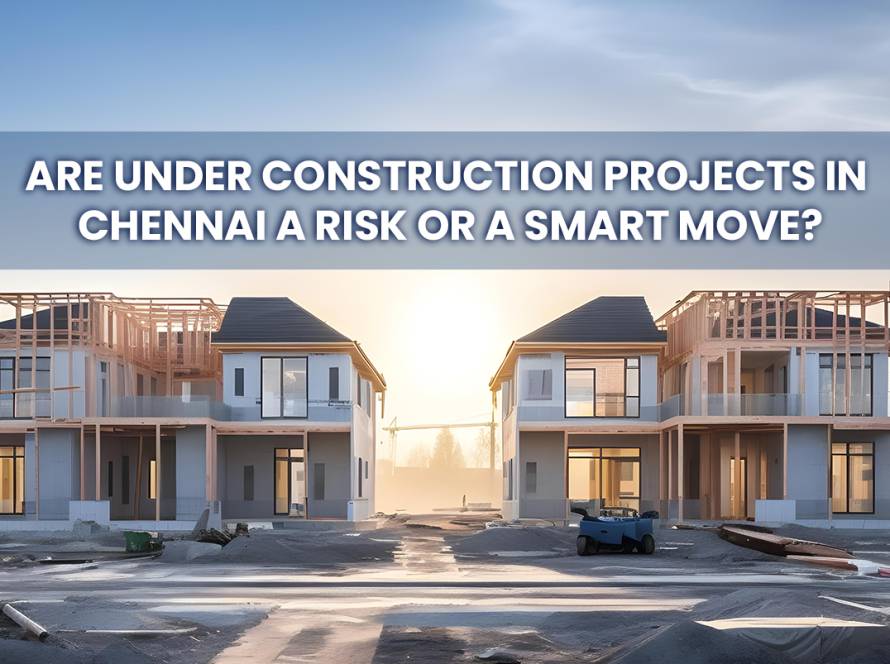Introduction
Document need to collect after registerion is a critical phase for anyone buying a villa—whether in a serene setting like Brookside Residences or a premium enclave such as Ocean Drive Villas. Once you’ve completed the registration of your villa—say in Chennai, Madurai or Coimbatore—it’s not enough just to make the purchase and move on. You’ll want to gather and securely store a set of documents that confirm your ownership, protect against future disputes, and enable smooth ownership transitions. This is especially relevant if you’re dealing with the best villa developers in India or one of the largest villa developers in India, and perhaps investing from abroad as an NRI. In this blog we’ll walk you through what documents to collect, why they matter, how NRIs should approach the process, and how VNCT Global can help you every step of the way.
Why Gather These Documents Immediately?
When you purchase villas in Chennai, villas in Madurai or villas in Coimbatore from reputed players those counted among the best villa developers in India and largest villa developers in India the registration is a major milestone, but it’s not the finish line. Having all your documentation in order means:
- You have legal proof of ownership, helping you avoid future misunderstandings or claims.
- You’re prepared for financing, resale, inheritance or rental activities.
- If you’re overseas, as many NRIs are, you have everything on-file (physical and scanned) so you can act remotely when needed.
- You protect your investment from being stalled by missing paperwork.
Core Documents to Collect After Registration
Here’s a checklist of the essential documents you need to obtain and keep safely:
1. Registered Sale Deed
This is the main document that shows you as the legal owner of the villa. It should be registered at the sub-registrar’s office. Without it, ownership claims can become tricky.
Ensure you receive the original and certified copies.
– Verify the details (buyer name, seller name, property description, date).
– If you’re buying from one of the largest villa developers in India, they should hand this over promptly.\
2. Title Deeds / Mother Deeds
These are earlier documents tracing ownership history. They help ensure there are no hidden claims or encumbrances.
– Ask for the chain of title held by the developer (especially relevant when you buy villas in Chennai or villas in Coimbatore).
– Have a professional review them if possible.
3. Encumbrance Certificate (EC)
This certificate shows the property is free from outstanding liens, mortgages or other encumbrances. sprindia.com
– Obtain EC covering at least last 10-15 years (or as required locally).
– Keep both original and digital copies.
4. Stamp Duty & Registration Receipt
You paid stamp duty and registration fees when you registered your property keep the original receipts. sprindia.com
– These demonstrate the cost paid and legal compliance.
– Useful for tax or resale scenarios.
5. Occupancy Certificate / Completion Certificate (if applicable)
If your villa project from a leading developer (among the best villa developers in India) is completed already, you’ll want the occupancy certificate (OC) or completion certificate (CC).
– Confirms that the building meets all norms and you are legally permitted to occupy.
– Especially important for resale or rental.
6. Approved Layout / Building Plan
You should collect the approved architectural plan, layout, site map, building plan and any changes (if any) by the developer.
– Helps to confirm the built villa matches what was promised.
– Vital if you later deal with resale or legal issues.
7. NOC(s) & Utility Approvals
No Objection Certificates (NOCs) from local authorities, builders and utilities (if any) are important.
– These may include power, water, environment, and municipal clearances.
– They lower risk of future liabilities.
8. Tax Receipts / Municipal Dues
Collect recent property tax receipts (for past few years) and ensure they are cleared.
– If you’re buying from a project like Park Villas or Palm Beach, this shows the property has been maintained.
– Helps for future transfer/mutation under your name.
9. Possession Letter (if applicable)
If you bought an under-construction villa, once you take possession you’ll need a handset or letter from the developer confirming date of possession, hand-over status and any defects liability period.
10. Mutation / UName Change Documents
After registration, you should apply to get the property mutated into your name in municipal/ revenue records.
– This step often gets overlooked by many buyers (especially NRIs).
– Mutation ensures local tax records reflect your ownership.
Special Considerations for NRIs & How VNCT Global Helps
If you’re an NRI planning to invest in villas in Chennai, villas in Madurai or villas in Coimbatore, your situation brings extra layers—remote monitoring, currency transfers, legal formalities across jurisdictions. That’s where VNCT Global steps in.
1. Remote Oversight
- VNCT Global can help coordinate with the developer and local authorities to collect and provide scanned/physical copies of all documents mentioned above.
- While you’re abroad or traveling (including events in Dubai or elsewhere), VNCT manages the documentation hand-over and progress tracking.
2. Legal & Compliance Support
- Ensure that your villa purchase from one of the best villa developers in India or largest villa developers in India meets NRI remittance rules, FEMA regulations, power of attorney norms and tax obligations.
- VNCT helps you verify the title deeds, EC, sale‐deed and other documents so you’re not exposed to legal risks.
3. Post-Handover Assistance
- After possession, VNCT Global can assist you with mutation filings, utilities transfer, property management and even rental placement if you choose to lease your villa while abroad.
- This ensures that your investment stays active, documented and secure.
4. Safe Storage & Audit
- VNCT Global recommends you maintain both digital and physical copies of every document. They also help you maintain a document-audit checklist so nothing goes missing.
- For developments like Brookside Residences, Creek Residences or Ocean Drive Villas, having documented history adds to resale value.
How to Organize Your Documents for Long-Term Security
- Create a binder (physical) + digital folder: Separate original hard-copies in a fireproof safe; keep scanned copies in cloud storage.
- Use a checklist: Go through the list of documents above and tick them off as you receive them.
- Label & date everything: For instance, “Sale Deed – Registered – 25 July 2025”.
- Keep backups: A copy with your local representative or with VNCT Global if you’re overseas.
- Review annually: Ensure tax receipts, utility bills, mutation status are current.
- Alert your heirs: If you plan inheritance of villas in Chennai or Coimbatore, make sure your family knows where the documents are stored.
Conclusion
Registering your villa is a major milestone in your property investment journey, but the process doesn’t end there. The document need to collect after registration is your legal safeguard and peace of mind. Whether you’re buying from one of the best villa developers in India or one of the largest villa developers in India, in locales such as villas in Chennai, villas in Madurai or villas in Coimbatore, getting every document right counts especially if you’re abroad. With the help of VNCT Global, the route becomes smoother, more transparent and tailored for NRIs. So take the time now to collect, verify and store your paperwork you’ll thank yourself in the long run.
FAQs for Documents after Registering my Villa
- How soon after registration should I receive the original sale deed?
Typically, the registered sale deed should be available within a few weeks of registration. If you don’t receive it, follow up immediately with the sub-registrar’s office and your developer/investment adviser. - What happens if I lose the original documents?
You’ll need to apply for certified copies at the registration or revenue department. For loss of sale deed or title deeds, you may also need a public notice or legal affidavit. It’s best to keep photocopies and scans as backup. - Is mutation mandatory and what if I don’t get it done?
Mutation is mandatory for municipal tax and revenue records to reflect your ownership. If you don’t do it, you may face issues in future resale, inheritance, or utilities transfer. As an NRI, having VNCT Global help you initiate mutation is highly advisable. - Can I scan documents instead of keeping originals?
Scans are excellent backups, but you should still keep original hard-copies in a safe location (bank locker or safe). Originals are often required for resale, loan processing or legal claims. - If I buy from the best villa developers in India, is the documentation simpler?
In many cases yes reputed builders (among the largest villa developers in India) tend to deliver documentation in a structured manner, making it easier for you. But you should still personally verify each document, because legal diligence is your responsibility.





